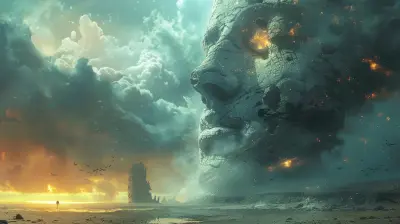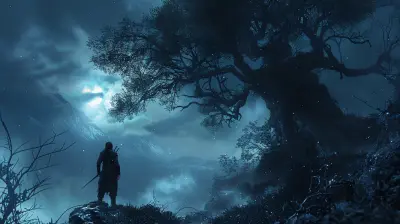Survival Mechanics and Exploration in Open World Games
11 October 2025
Open-world games—man, they’re a wild ride, aren’t they? There’s something about getting thrown into a massive, sprawling world with the freedom to carve your own path. But let’s be real for a sec: the best open-world games are more than just pretty landscapes and fetch-quests. They hook us with immersive survival mechanics and make exploration feel like an epic adventure.
You’ve probably noticed that survival and exploration go hand in hand in these games. Developers know how to test your instincts, challenge your strategies, and make you question your next move. So, let’s dive right into why survival mechanics and exploration are the bread and butter of open-world games—and why they’re so dang addictive.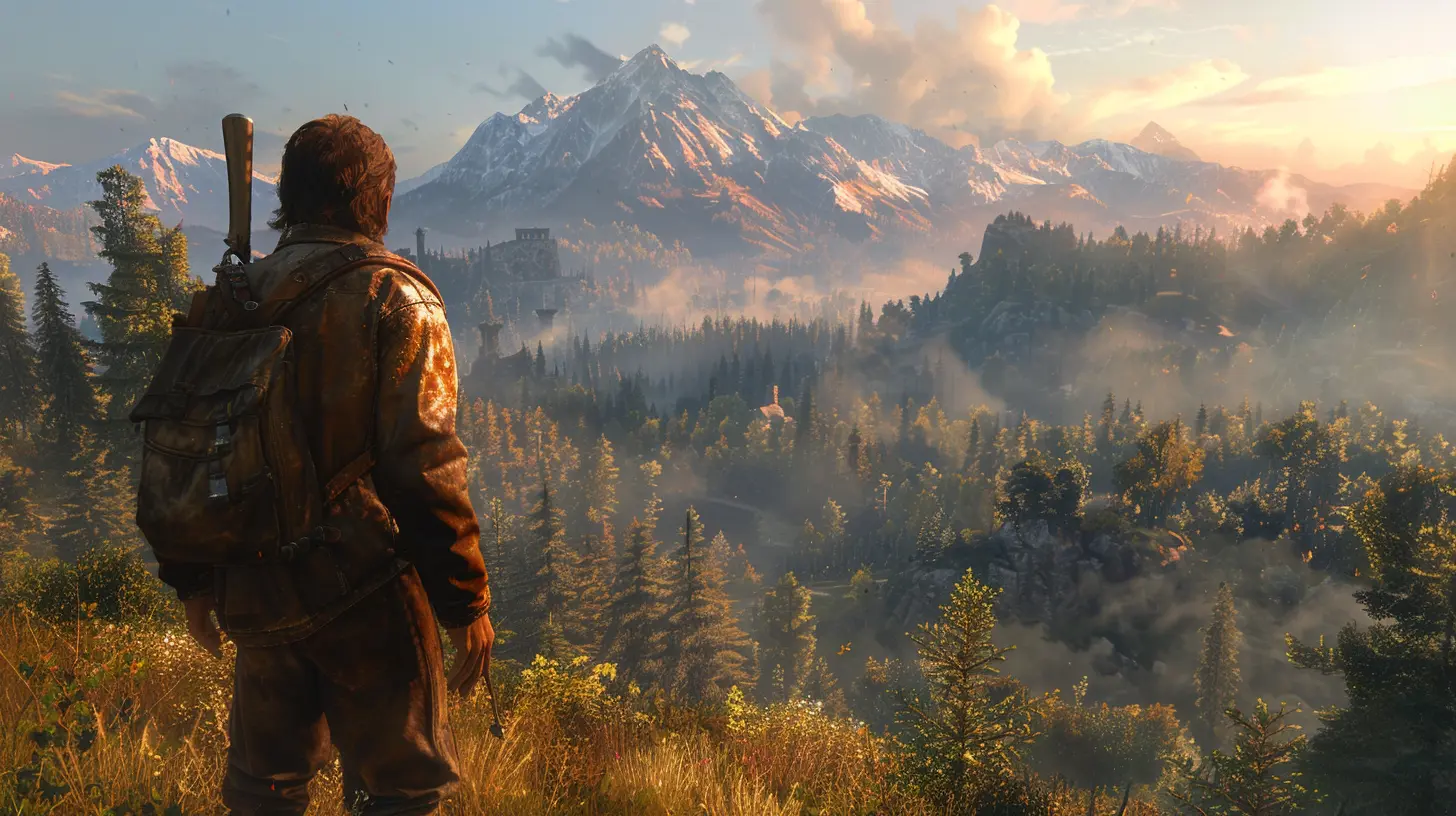
Why Survival Mechanics Make Games More Immersive
Let’s get one thing straight: survival mechanics create tension. And tension? It’s like the secret sauce in open-world games. It keeps you on edge, makes every decision feel meaningful, and turns a casual stroll into a life-or-death ordeal.Take The Forest for example. You wake up after a plane crash on some spooky, cannibal-infested island. It’s not just about chopping trees and building shelters (though that’s super fun too). It’s about managing your hunger, thirst, and stamina while figuring out how not to die a horrible death. Every moment is a balancing act, and honestly, that’s what makes it so engaging.
But hold up—it’s not just about survival for survival’s sake. These mechanics are often interwoven with storytelling. Ever noticed how games like Subnautica or The Long Dark use survival needs to drive the narrative? You’re not just gathering resources; you’re uncovering hidden secrets, piecing together lore, and connecting with the world on a deeper level. It's like the game is whispering, "Hey, survival is important, but there's more to this world than meets the eye."
The Art of Resource Management
Ah, resource management. Love it or hate it, it’s a cornerstone of survival mechanics. And honestly, it’s where a lot of the fun comes from.Why? Because it forces you to think. You only have so much space in your inventory—do you bring extra food, or do you save room for rare loot? When resources are scarce, every scavenged item feels like a treasure. Games like Don't Starve shine here. You’ve got to juggle everything—hunger, health, sanity—all while exploring an unforgiving wilderness teeming with creepy crawlies.
Resource management also forces you to prioritize. It’s like grocery shopping on a budget but way more intense. Should you craft a weapon to fend off enemies, or should you save your materials for a rainy day? It’s these little decisions that make survival mechanics feel so real and rewarding. 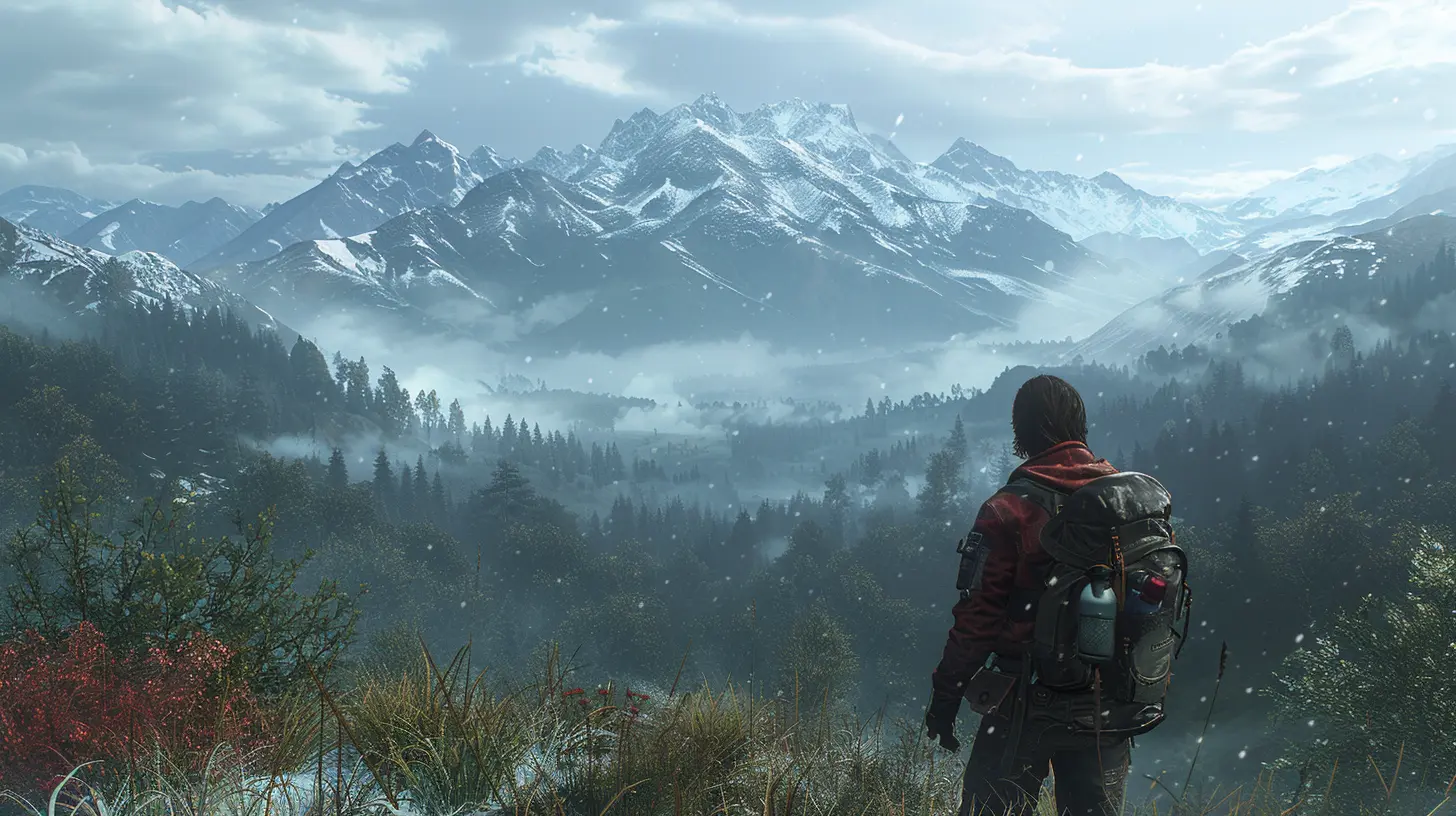
Exploration: The Heart of Open-World Games
Now let’s talk exploration. Open-world games live and die on how well they encourage players to explore. And trust me, the best ones make you feel like a kid on a treasure hunt.Think about The Legend of Zelda: Breath of the Wild. That game doesn’t just hand you a map filled with quest markers and say, “Go fetch.” Nope, it throws you into a massive world and says, “See that mountain? Climb it. Oh, and by the way, you might freeze to death if you’re not prepared.” It’s exploration at its finest—organic, unpredictable, and full of surprises.
What makes exploration so satisfying is the sense of discovery. You’re not just walking from Point A to Point B; you’re stumbling upon hidden ruins, stumbling into side quests, and soaking in the beauty of the world around you. It’s like being let loose in a playground where every corner has a story to tell.
Environmental Storytelling
Let’s pause for a sec and talk about environmental storytelling. You know, the way a world tells its story without a single word. Games like Fallout 4 are masters at this. You’ll walk into an abandoned house, find a tipped-over chair, some skeletons, and a journal entry, and suddenly you know what happened there.Exploration feels so much richer when the world itself is a character. It’s like reading a book, except you’re piecing the story together through clues instead of being spoon-fed a narrative. Ever wandered through the hauntingly beautiful world of Hollow Knight? Every corner of the map feels alive, like it has a history just waiting for you to uncover it. 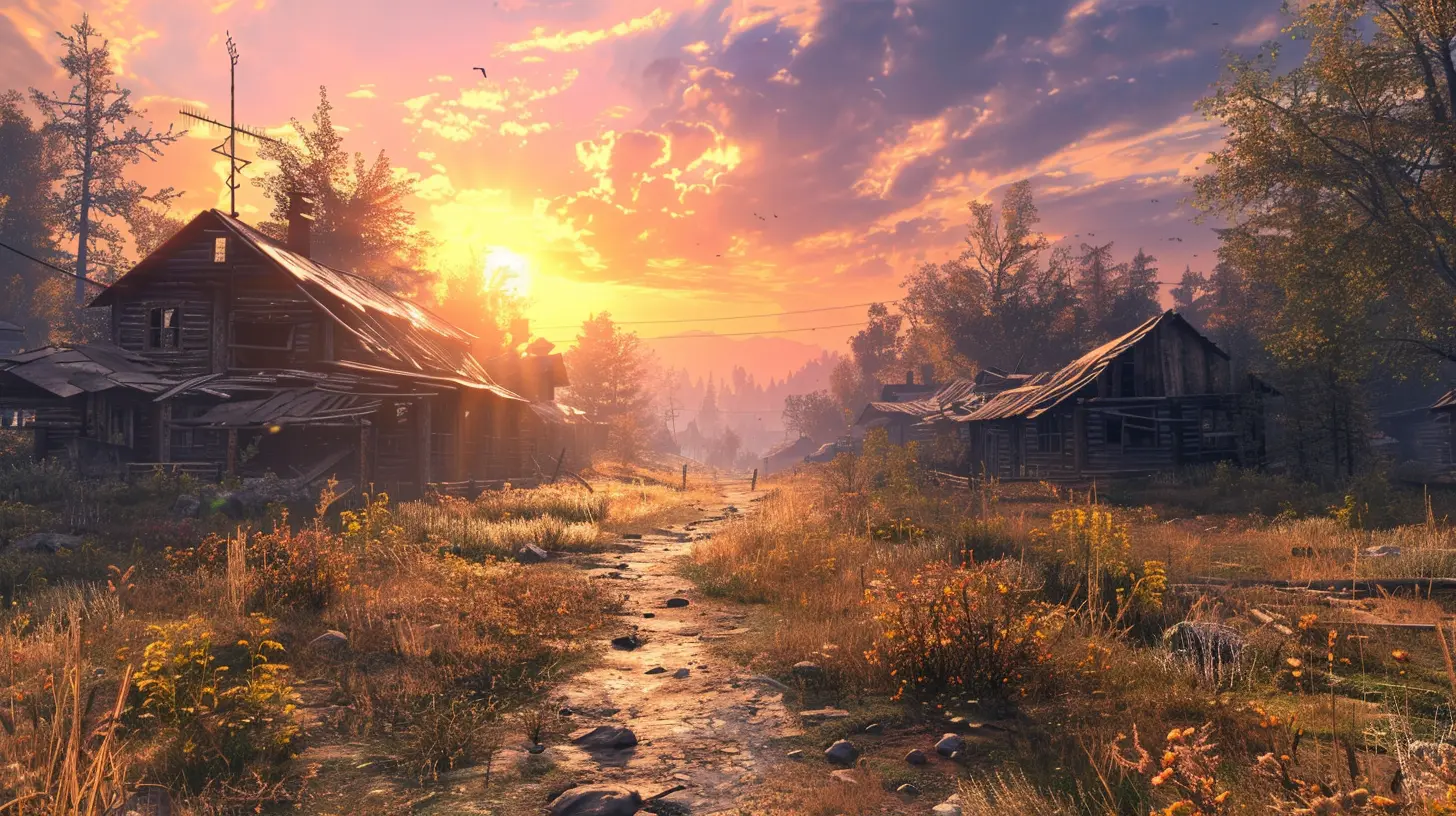
How Survival and Exploration Intersect
Here’s the thing: survival and exploration aren’t just two separate mechanics—they’re deeply connected. One feeds into the other, creating an experience that feels seamless and immersive.Imagine you’re playing Red Dead Redemption 2. You’re out in the wilderness, running low on food and supplies. Do you risk heading deeper into unknown territory, or do you retreat to the safety of your camp? The act of exploring becomes ten times more thrilling when your survival is on the line.
This blend of mechanics makes every choice feel significant. You’re not just exploring for the sake of it; you’re exploring because you need to. And that need creates a sense of urgency and purpose that keeps you hooked.
Emergent Gameplay
Ever heard the term “emergent gameplay”? It’s a fancy way of saying, “Stuff happens that you didn’t plan for.” And survival-exploration games are packed with these moments.Maybe you’re roaming through DayZ, searching for supplies, when you stumble upon another player. Do you trust them? Team up? Or is it every man for themselves? These unscripted encounters create stories you’ll be telling your friends about for years.
Emergent gameplay is where survival and exploration truly shine. It’s unpredictable and chaotic, but that’s what makes it so exciting. No two playthroughs are ever the same because the world reacts to your choices and actions. 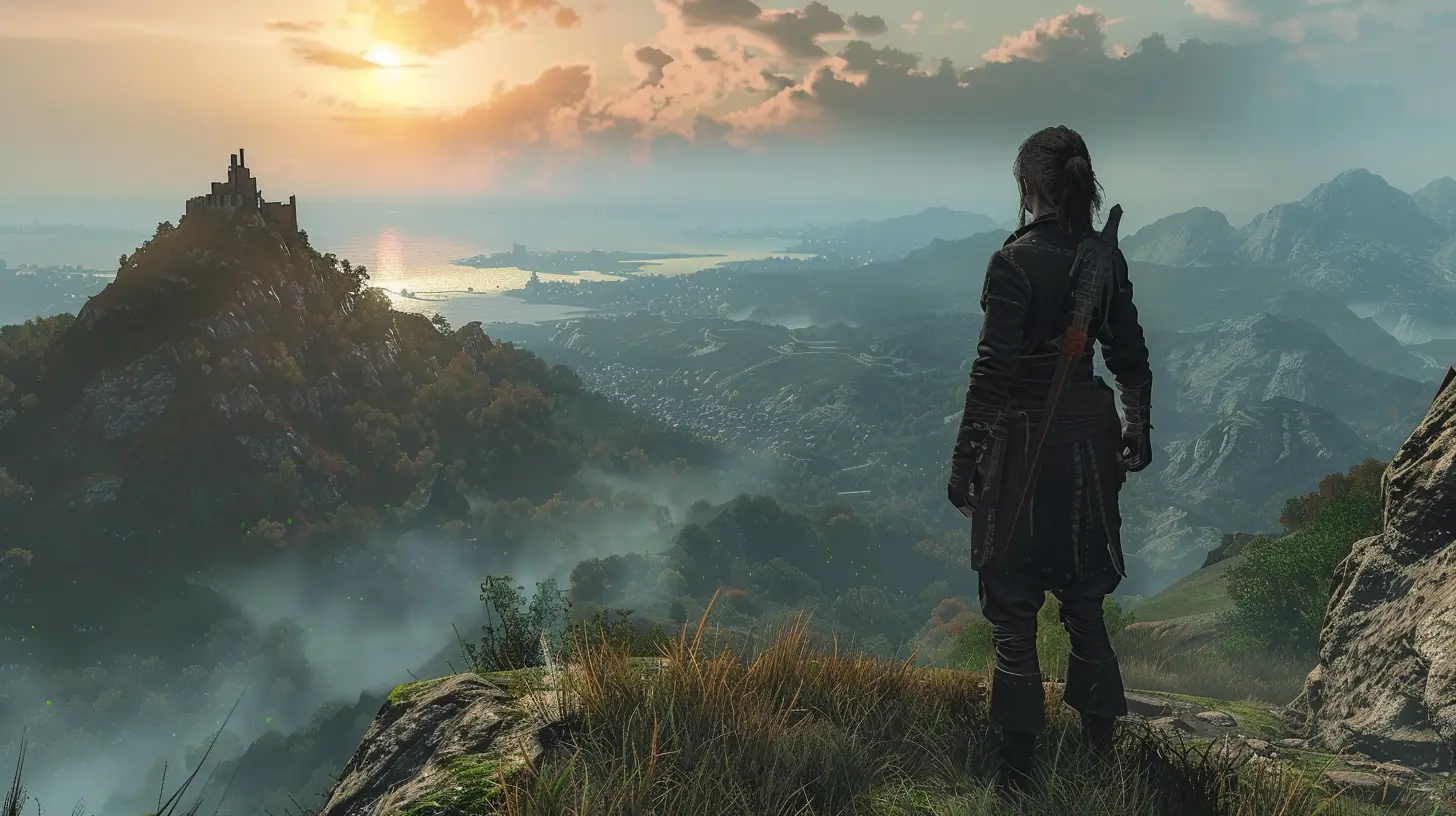
Why Players Love This Combo
Let’s face it: we’re all suckers for a good challenge. Survival mechanics make games tough, but they also make them rewarding. Pair that with the thrill of exploring the unknown, and you’ve got a recipe for an unforgettable experience.There’s also a psychological aspect to it. Survival and exploration tap into our primal instincts—to gather, to adapt, to conquer the wild. It’s like the ultimate test of whether you’ve got what it takes to make it out alive.
And let’s not forget the emotional payoff. When you finally craft that perfect weapon, discover a hidden cave, or outlast a grueling storm, you feel a sense of accomplishment that few other game genres can offer.
Survival Mechanics and Exploration in the Future
So, where are survival and exploration mechanics headed? Honestly, the sky’s the limit. Developers are constantly finding new ways to innovate, from procedurally generated worlds to AI-driven ecosystems that react dynamically to your actions.Imagine a game where the environment evolves based on your choices. Chop down too many trees, and you trigger deforestation. Overhunt an area, and animal populations dwindle. These mechanics could make exploration even more meaningful, as players would have to think critically about how their actions impact the world around them.
Final Thoughts
At the end of the day, survival mechanics and exploration are what make open-world games so captivating. They turn a lifeless map into a living, breathing world full of danger, discovery, and endless possibilities. And honestly? That’s what keeps us coming back for more.So the next time you’re navigating treacherous terrains, scavenging for food, or uncovering hidden mysteries, take a moment to appreciate how these mechanics seamlessly come together to create an unforgettable experience. Because in the world of open-world games, survival isn’t just about staying alive—it’s about thriving in the unknown.
all images in this post were generated using AI tools
Category:
Open World GamesAuthor:

Leif Coleman
Discussion
rate this article
1 comments
Tiffany McNulty
Great insights on how survival mechanics enhance exploration in open world games! Balancing resource management with immersive environments truly heightens the player experience, making each adventure feel unique and rewarding. Keep it up!
October 12, 2025 at 3:26 AM

Leif Coleman
Thank you for your thoughtful comment! I'm glad you found the insights on survival mechanics and exploration valuable. Your feedback is much appreciated!

